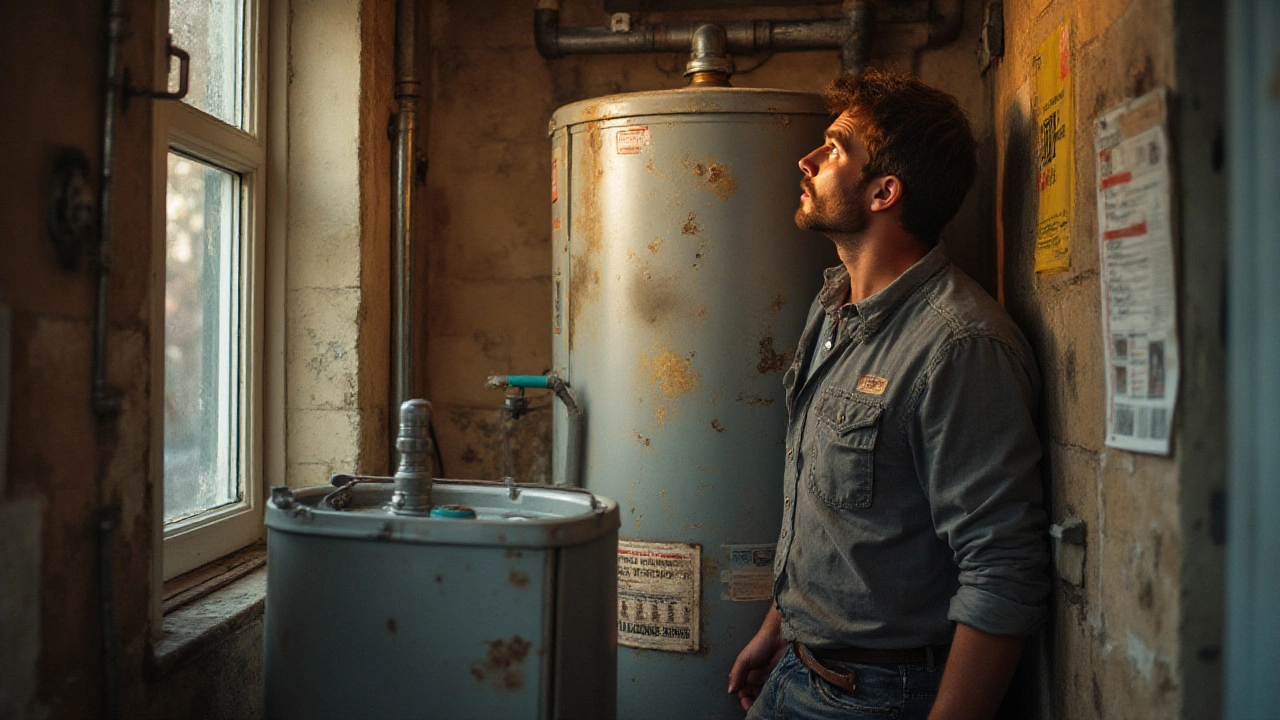20-year-old water heater acting up? Dive into real-world facts, costs, safety tips & pro advice to decide whether you should repair or replace your aging water heater.
Repair Old Water Heater: What You Need to Know
Got a water heater that’s been chugging along for a decade or more? It’s normal to wonder if you can fix it yourself or if you should call in a pro. The good news is many issues are simple enough to tackle with the right guidance, and knowing the warning signs can save you a costly replacement.
Quick DIY Checks Before You Call a Technician
First, make sure the power or gas supply is on. A tripped breaker or a shut‑off valve can look like a broken heater. Next, inspect the thermostat settings – most homes run fine at 120°F (49°C). If you notice no hot water, strange noises, or rusty water, it’s time for a deeper look.
Look at the pressure‑relief valve. Lift the small lever; you should see a brief gush of water. If it’s stuck or leaks, replace it right away – a faulty valve can cause dangerous over‑pressure situations.
Flushing and Draining: Extending the Life of an Old Heater
Mineral sediment builds up inside the tank and makes the heater work harder, cutting efficiency and shortening its lifespan. Draining and flushing is the cheapest maintenance move you can make.
Here’s a simple step‑by‑step:
- Turn off the power (electric) or gas (turn the gas valve to ‘pilot’).
- Close the cold‑water inlet valve.
- Connect a garden hose to the drain valve at the bottom of the tank and run it to a floor drain.
- Open the drain valve and let the water flow out. To loosen sediment, briefly open the inlet valve while the tank drains.
- After the tank is empty, close the drain valve, remove the hose, and fill the tank with fresh water. Let it run for a few minutes, then drain again to rinse out remaining particles.
- Close the drain, reopen the inlet valve, restore power or gas, and wait for the water to heat.
Doing this once a year can add a few extra years to an old heater’s life.
If the water still looks cloudy, or you hear rumbling after flushing, the heating element or burner may be failing. Replacing an element is usually a $50‑$150 job if you’re comfortable working with electricity or gas – but always shut off the power and follow safety guidelines.
When the heater is more than 10‑12 years old, corrosion on the tank’s interior is common. Look for rust spots on the outside or leaking water at the base. These are signs the tank’s structural integrity is compromised and replacement is the safest route.
Cost‑wise, a new electric heater runs £400‑£800 installed, while a gas unit can be £800‑£1,500. Compare that to an annual repair bill that can quickly add up if parts keep failing.
In short, start with the basics: power, thermostat, pressure valve, then move to flushing. If you spot rust, persistent leaks, or the heater is over a decade old, plan for a replacement. It’s better to prevent a sudden cold‑shower surprise than to scramble for an emergency fix.
Need a professional hand? A qualified engineer can safely test the anode rod, check gas connections, and ensure everything meets UK regulations. Let the DIY work buy you time while you decide if a full replacement makes sense for your home and budget.

